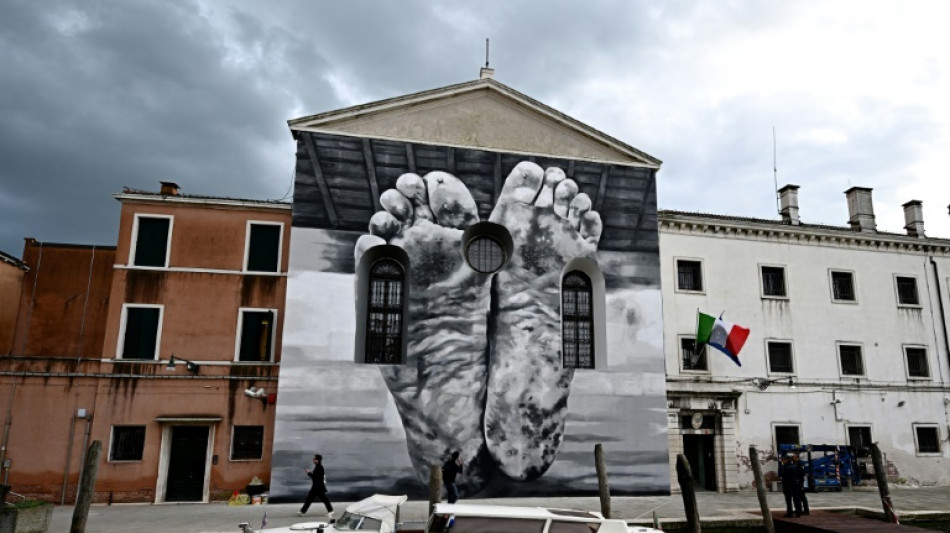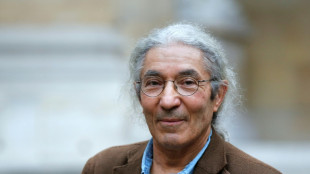

Women's prison hosts Vatican's Venice Biennale show
A women's prison is the site of an immersive art show from the Vatican at the 60th Venice Biennale, an unlikely venue that its curator says is a "message in itself".
Away from the spotlight and the crowds of the prestigious international art fair, the former convent on the island of Giudecca in the Venetian lagoon now houses women serving long sentences.
But during this year's Biennale it is home to the exhibit "With my Eyes", which considers the daily lives of the prisoners through the work of 10 different artists.
Setting the tone on the exterior facade of the prison is an imposing painting of the soles of two bare feet with rough skin by the Italian artist Maurizio Cattelan.
"It was not a matter of turning the prison into a mundane exhibition space, but of engaging artists in artistic and relational work with female inmates," said Bruno Racine, the curator.
The invited artists were "united by a conscience of the context and a willingness to participate in a unique artistic and human experience", he said.
"We had to find a concept, a place that was a message in itself" for the Vatican's show.
Pope Francis, who has repeatedly championed the cause of prisoners and others on society's margins, plans to tour the exhibition during a visit to Venice on Sunday.
- 'No armour' -
Even gaining access to the show is part of the experience as visitors must comply with stringent security measures, including reserving in advance and leaving mobile phones in lockers during the visit.
Photography is not allowed.
Twenty prisoners out of the institution's 80 are taking part in the show as guides, including Pascale and Marcella at a recent press day.
In a decrepit outdoor brick corridor topped with barbed wire, poems and messages have been transcribed onto lava slabs by the Lebanese artist Simone Fattal.
"I would like to isolate myself, to roll up in a ball in my chest, here there is no armour", one of them reads.
At the end of the corridor is a work by the Claire Fontaine collective -- a neon eye that has been crossed out, symbolising invisibility and inmates' inability to access the outside world.
Nearby, rows of lettuce are planted in a large garden with greenhouses, a rare glimpse into the daily life of the prisoners.
"This is the part I call home. This is where we grow the fruit and vegetables that are sold outside," Marcella said.
In the courtyard, a blue neon message hanging on the wall calls out to visitors: "Siamo con voi nella notte" ("We are with you in the night"), a slogan born in Florence and used in 1970s Italy in support of political prisoners.
Illuminated 24 hours a day, it can be seen from the cells.
It's "a way of showing women that they're not alone", said a guard who was supervising the visit.
- 'Intimate stories' -
A black-and-white short film by the Italian director Marco Perego features some of the inmates as well as his wife, the American actor Zoe Saldana, telling the story of a woman's last day in prison.
In another room are paintings of the prisoners and their loved ones by the French artist Claire Tabouret, reproduced from family photos.
"She has collected pieces of intimate stories, of life. Here, there's my son," said Marcella, pointing to one of the paintings.
At the end of the visit, Marcella recited a poem she had written and expressed enthusiasm about the pope's visit.
"We can't wait to see him. This whole project is a message of hope."
N.Handrahan--NG



